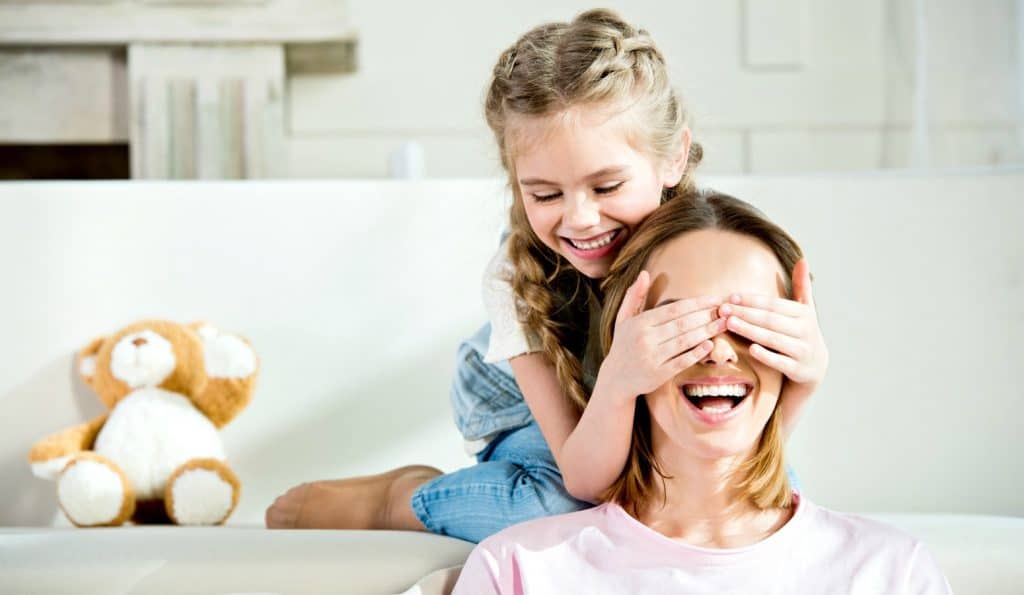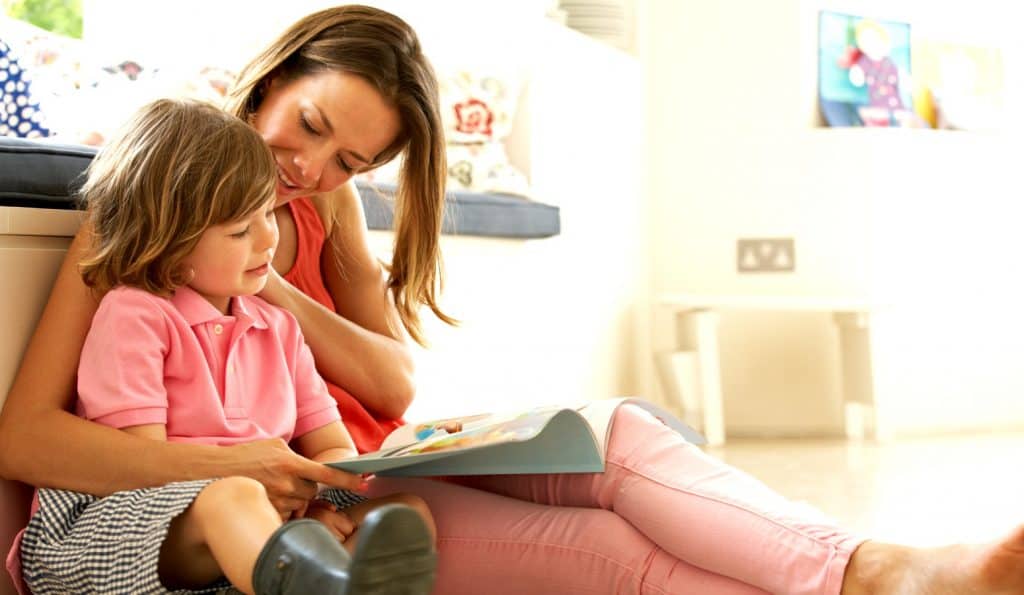Intentional Parenting With Purpose and Mindfulness
Table of Contents
An intention is something you mean to do. With regard to intentional parenting, this definition alone is sort of muddy and convoluted. I could call myself an intentional parent and have great intentions that I rarely or never put into action.
When it comes to intentional parenting in a way that makes a powerful and positive impact on your child’s life as well as your joy in motherhood, intentional parenting needs purpose and mindfulness to accompany it!
Moms must have a goal for their parenting efforts that they can then take intentional steps to reach.
Without identifying and committing to that goal, we could end up intentionally dedicating our time to the wrong things.

What Intentional Parenting IS
Intentional parenting is, first of all, realizing you are training your child every moment of every day. Being intentional with that is training in those every moments, good and prosperous habits, virtues, and behaviors for the betterment and fulfillment of their lives.
Intentional parenting is connecting with your children in a deep and meaningful way to fill their hearts and develop a strong relationship with them that will allow you a measure of influence over their lives now and later on.
Intentional parenting is disciplining in a way that inforces all the training that you have been intentionally doing.
Intentional discipline is setting a rule or standard, then being absolutely consistent to follow through with positive and negative consequences and positive and negative reinforcements. So that your child can understand how life works, have a well-calibrated moral compass, possess a strong family tether, that he is proud to belong to, and have a solid moral code that wasn’t made up out of thin air.
How to Use Intentional Parenting to Build Healthy Relationships with Your Child.
- Intentionally schedule a date with your child BEFORE anything else goes on your calendar.
- Intentional parents connect every day in simple and meaningful ways.
- Parenting with intention and purpose is knowing your child’s love language and speaking it to them.
- Intentional parents know and sharpen their child’s strengths.
- Intentional parents take interest in child’s interest even if they don’t interest them.
- Parents operating with mindful intention are aware of their child’s weaknesses, work to strengthen them, but do not allow their children to be defined by them.
How to Use Intentional Parenting to Raise a Self-controlled Child.
- Intentionally train the behaviors and habits you want your child to possess, such as self-control, manners, kindness, boldness, respect, generosity, and gentleness.
- Intentionally teach and train your child how to listen more than they talk.
- Intentional parents train their children how to speak up and have the floor when it’s his turn.
- Intentionally train your child how to build and grasp confidence.
- Intentional parents train their children how to recognize, own, and use their unique set of talents and skills.
How to Use Intentional Parenting to Raise a Responsible Child.
- Properly use discipline in an intentional way to illustrate the necessity of respecting others, understanding and abiding by boundaries, comprehending consequences of their actions and choices.
- Follow through with consequences and punishments when implemented.
- Intentional parents are consistent from one day to the next. Don’t make a rule that you will strictly enforce today and let slide tomorrow.
- Intentional parents do not replace toys, electronics, or clothing broken or destroyed by irresponsible behavior or broken rules.
- Intentional parents withhold treats, electronic play, and privileges unless earned.
- Intentional parents train their child how to put money aside and use less than what they have.
- Intentional parenting is realizing that every thought, word, and action you do somehow affects your child. Therefore, you are cognizant and aware of this truth.

Can Intentional Parenting Be Done Wrong?
This, obviously, depends on your definition of wrong, but sure it can.
If you are intentionally parenting your child to be a bully, disrespect authority and others, ignore body safety for others, be violent, throw their money away, or behave irresponsibly, you’re intentionally parenting wrong.
But honestly, most parents aren’t going to be doing that on purpose, right? (Or at least the rest of us hope!)
What IS likely to happen, though, is many of the above undesirable traits WILL be adopted by a child whose parent isn’t intentional to train the opposite.
Child training is happening all the time.
What’s most important of all, in regards to child training, is to understand that you are doing it, whether you realize it or not. Every word you speak and action you make is training your child something.
The problem with not being intentional to child train correctly is that you are training your child on accident, which always produces poor results.
How to Begin Intentional Parenting Today?
- 1. Take purposeful steps to connect. Get the guide for that here.
- 2. Take mindful steps to train your child well. Get the guide for that here.
- 3. Take intentional steps to discipline your child effectively. Get the guide for that here.
My favorite way to do this is to reverse engineer my parenting thought process.
Ask yourself, “What is it I REALLY want to accomplish in my parenting efforts?” “REALLY?”
Personally, for my husband and me, that is for the children to know, serve, and commit their lives to Christ.
This is the only way we get to be together forever and I know their eternity is secure. So my #1 most crucial intentional parenting goal is to introduce them to Jesus.
Then work backward from there.
You can create a custom guide for yourself and your family based on what your hopes, dreams, and goals are for your parenting. Similar to the child training map available in the parenting scrolls.
Naturally, there are all sorts of little and middle goals that fit in underneath that larger overarching one main goal.
For instance, I want my children to have money.
As in, I want them to have enough money to care for their families, give money away to bless and benefit others, and still have enough to set aside for emergencies. This means taking intentional steps to train them to accomplish this.
We also want our children to have healthy friendships that last.
Relationship training is happening in every home in the world on a daily basis. So we take intentional steps to show our children what defines a healthy relationship and how to have them.
We train them how to choose the right friends. Friends who will sharpen them and NOT drag them into hell. As well as modeling what a healthy marriage looks like, so they won’t settle for anything less when the time comes.
Lastly, we use intentional parenting to create strong sibling relationships.
Come back here later to read more about sibling relationships.
Additionally, we want our children to make a habit of putting others first. We live in a VERY me-centric culture. The self-love message is EVERYWHERE!
I challenge you to spend the next week looking for the words, self-love, and see how often you notice it.
Self-love is different than self-care. Self-care acknowledges that mom is a person with needs too, while self-love places our own needs above those of others. (Be careful not to confuse loving yourself and self-love as well – one is healthy, and one is not.)
Nowhere in scripture can I find any blessing or benefit promised by God for putting ourselves first.
Therefore, our family motto is, “it’s not about me.”
We use child training and connecting to demonstrate, train, and model to the children how to consider and prefer others first and how self-fulfillment comes as a result!
Intentional Parenting Requires More than Good Intentions
Parenting with intention becomes purposeful parenting when you put a solid plan into action. Complete with daily implementation and consistency.
Intentional parenting in and of itself indeed points to a desire to send your child down the right path.
However, once your parenting intentions take life with actionable steps toward connecting, training, and effective discipline when necessary, a harvest of family harmony is reaped that can’t be beaten!
Which intentional steps would you like to take first? To connect? To train? To discipline?

